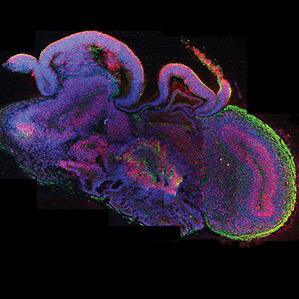How Gilead Is Destroying Its Competition by Creating Drugs 7 Times Faster
Rich Hua stashed this in Business
Stashed in: Medicine, Big Pharma, Medical Breakthroughs
Gilead’s hepatitis C drugs are revolutionary. They’re also very expensive. A 12-week course of Sovaldi costs $84,000. (That’s $1,000 per pill.) A 12-week course of Harvoni generally costs $94,500. Gilead predicts that future versions could require shorter lengths of treatment, which will thereby bring down costs. And by taking these drugs, patients are less likely to be hospitalized or undergo costly liver transplants. Plus, Gilead charges the same or less than its rivals do for their less effective treatments.
Still, Gilead has experienced backlash. Insurance companies and benefit managers, such as Express Scripts, have accused Gilead of trying to bankrupt the health care system, while other groups, such as the Philadelphia transit system, have gone so far as to sue the company for the amounts they’ve had to pay for employees’ therapies. “They don’t have to be as expensive as they are,” says UCSF’s Fox, acknowledging that Sovaldi is priced the same (and even lower) than similar and specialty medications for other diseases. “When these drugs come out, almost everyone is eligible right away. There’s a pipeline of people waiting,” she says, which results in billions that insurance companies and Medicare must pay at once.
Economists would say that high return is what creates a competitive, and therefore, more innovative market, because pharmaceutical companies are incentivized to invest in tackling the most challenging diseases. “We’re getting into a situation where drugs are geared to more and more [specific] conditions, they’re hard to make, and they’re going to be priced high because of that,” says Craig Garthwaite, an economist and strategy professor at the Kellogg School of Management. Besides, he says, “we’ve been complaining for a long time about how all pharmaceutical companies are doing is creating me-too drugs,” he says, referring to scores of treatments for more mundane conditions like heartburn. “No one can argue that this is not real innovation. They’re doing everything that we’ve asked them to.”
I agree that their anticompetitive practices bring some problems with their solutions.
How does Gilead make drugs 7 times faster?
It can take up to 15 years to bring a drug to market. Gilead did it in two. First, sofosbuvir was well into development when Gilead bought it. Second, the FDA is often willing to expedite approval of drugs in areas not typically prone to innovation. (“The common denominator is high unmet need,” says Saurabh Aggarwal, principal and cofounder of Novel Health Strategies, a firm that advises companies on bringing drugs to market. “Gilead has a high focus on that, which helps it get early approval.”) Third, Gilead’s top executives—all accomplished chemists—were quick to recognize the drug’s potential and submitted Sovaldi for “priority review” (the FDA commits to take action within six months instead of 10). The FDA then requested that it be submitted as a “breakthrough therapy” (which involves FDA collaboration) and advised Gilead to do away with 48-week clinical trials, since the previous data had already shown improvement upon the standard of care.
Okay but most of the speed was due to it already being deep into development when they bought it.
Then the title of the article was misleading.
I think so.
Still an interesting article that demonstrates that Gilead uses its advantages to control prices, not necessarily for the good of all, which puts them in a grey area ethically.
But in a white hot area of efficacy. How great is this for hep c patients!
Great for their healing, bad for their wallets.











2:16 PM Feb 21 2015